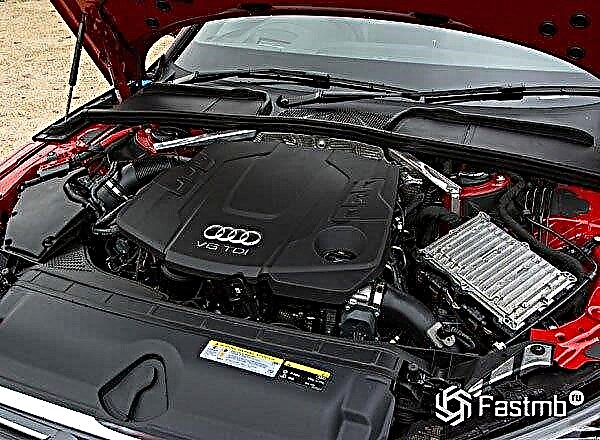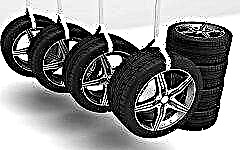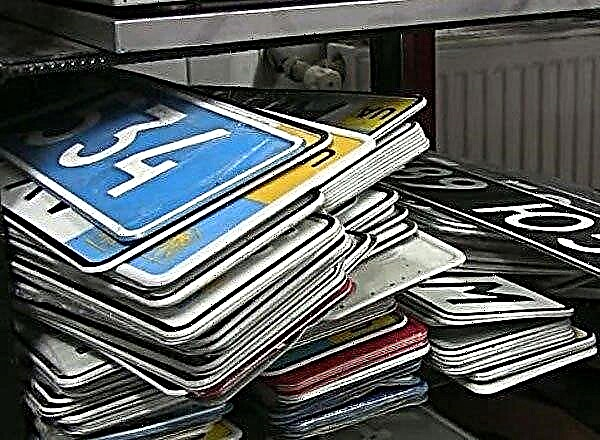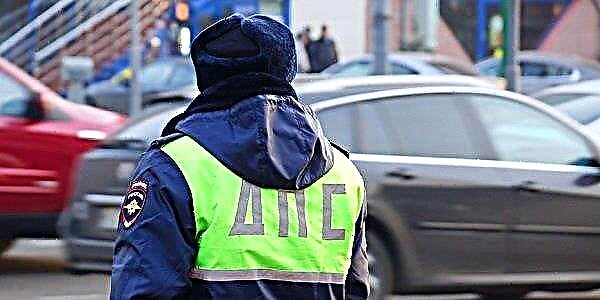
The content of the article:
- Indexation of fines by income
- Fines for the rich
- Unclear questions
The State Duma proposed to consider a bill providing for the introduction of coefficients in the calculation of fines for violation of traffic rules. So, for low-income owners, a reduction coefficient is provided - 0.5. And for affluent motorists - from 2 to 40. The increase in fines, and previously increased transport tax - marks a clear trend of dividing motorists into poor and rich. The innovation will significantly hit the piggy banks of businessmen and stars - those who like to drive, forget about fines.
Income penalties

The idea of indexing fines for wealthy drivers was proposed by Alexander Starovoitov, a deputy from the Liberal Democratic Party and Deputy Chairman of the State Duma Committee on Transport.
Starovoitov proposed to discuss the introduction of a progressive scale of fines in the Code of Administrative Offenses. For a group of low-income people who have lost their jobs, who are at the labor exchange, he proposed a coefficient of 0.5 to the fines provided for by the Code of Administrative Offenses. All other coefficients are increasing. With a salary of more than 100 thousand rubles. the amount of the fine is proposed to be multiplied by two. With a salary of more than 200 thousand - by 3, and with incomes over 300 thousand - by 4. For the management staff of state corporations, an astronomical coefficient of 40 is proposed.
According to the people's deputy, the existing fines do not have a proper impact on the wealthy car owners. To some extent, he is right - at present, for those to whom the amount in the penalty receipt is important, it is already large, and the rich will violate, not paying attention to the fines.
If the progressive scale of M. Starovoitov is adopted, the primary passage through a red light will result in a fine of 500 rubles for a poor car owner, and a fine of 40 thousand rubles for the head of a state corporation.
Let's calculate how much the Russian treasury would have been replenished if the deputy's proposal had already been accepted earlier.

The end of 2015 excited the car community with information about the 200,000th unpaid fines of the people's artist and deputy Joseph Kobzon... Traffic violations were recorded by cameras, so there was no possibility of the “understand and forgive” principle. Some time later, Joseph Davydovich officially announced the payment of fines.
Kobzon's annual income of 99,129,586.15 rubles for 2015 can be found on the website of the State Duma. When divided by 12, you get 8,260,798.84 per month. According to Starovoitov's system, using a 4-fold coefficient, we get a fine of 800,000 rubles.
To translate the amount of fines into normal human language, we will use the data of Chelyabinsk Statistics. The salary of a teacher of primary and secondary vocational education is 24,210.8 rubles per month. For the amount of Kobzon's violations, it would be possible to pay salaries to three teachers for a whole year.
Fines for oligarchs

The selection of the heads of state corporations into a separate group with a huge coefficient looks rather strange. M. Starovoitov, apparently, forgot that people of this category do not drive themselves - there are personal drivers for this.

In November 2009, the car of the head of Rusnano got into an accident Anatoly Chubais, while the driver crossed the double continuous line. The driver was deprived of his license for 4 months. Let's calculate what would threaten Anatoly Borisovich if he was driving his car, if we use increasing coefficients:
In 2014, Anatoly Chubais earned 207.4 million rubles. - 17,291,666.66 per month.
The increasing coefficient from Starovoitov will result in a fine of 60,000 rubles.
Similar systems in Western countries

The idea of linking administrative fines to income is not a unique finding of Alexander Starovoitov. To solve the problem of administrative fines in Sweden, Switzerland, Finland, a scale of fines was introduced, depending on the income of the offender.
This system has been successfully operating on Finnish roads for a long time. This explains the Finnish record fines for traffic violations. Millionaire Jussi Saloya for speeding in 2004, a receipt was issued in the amount of 170 thousand euros. He raced at 80 km / h under the 40 km / h limit sign. At the exchange rate of 2004 in rubles, the fine was 3.7 million rubles.

For the Formula 1 pilot Kimi Raikkonenu for transporting 3 snowmobiles on a trailer, he was fined 30 thousand. In his McLaren team, he received a salary of 150 thousand euros.

Show business stars in Europe do not regret it at all. Sami Naseri, who played the main character in the movie Taxi, often meets with the French police. In 2008, for a police officer who was shot down, he received 6 months of strict regime, 7.5 thousand euros in a fine and deprivation of rights. On May 14 this year, he was caught by a policeman with Ukrainian rights. The source of the interesting document for the police remained unknown. And the offender received a fine for driving without a license.
Russian penalties for driver violations remain the lightest. We have a red pass - 1 thousand rubles, in Germany - 90 euros, if the signal is on for 1 second, and if longer - 200 euros. According to the exchange rate, this is approximately 6.7 and 15 thousand of ours.
For drunk driving: we have deprivation of rights and 30 thousand, for the French - from 0.8 ppm - deprivation of rights and 4.5 thousand euros of a fine (337.5 thousand in terms of).
Questions

With the introduction of odds and rich, fines can start to hit the pocket. In general, the idea of differentiating punishment looks attractive. Having slightly altered the phrase of the hero of "Spider-Man", we get: "The more income, the more responsibility."
With common sense and general correctness, the proposal also raises a lot of questions. First, how do you determine the amount of income? Everyone has heard of the unemployed in cars worth several million. Salaries in envelopes are still not uncommon.
Secondly, in order to determine the annual income, the traffic police officer must have access to the personal information of a citizen, to which even now a limited number of services have access.
The adoption of the law seems rational, but the technical side of the issue needs to be worked out.











